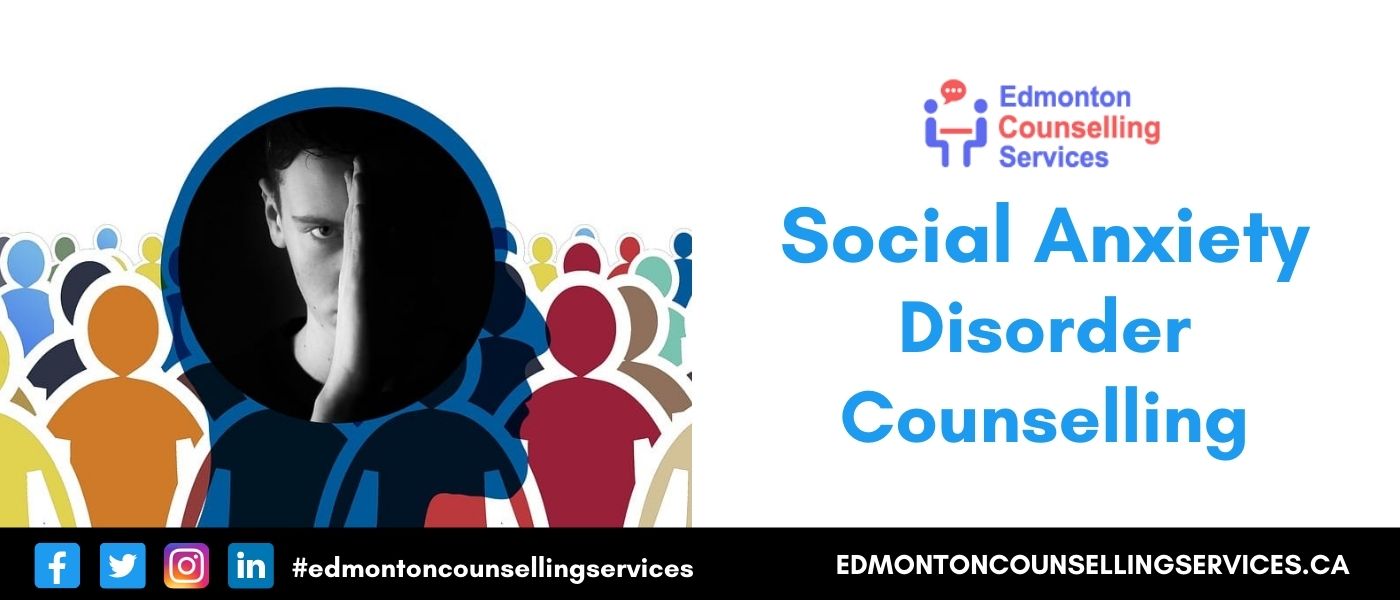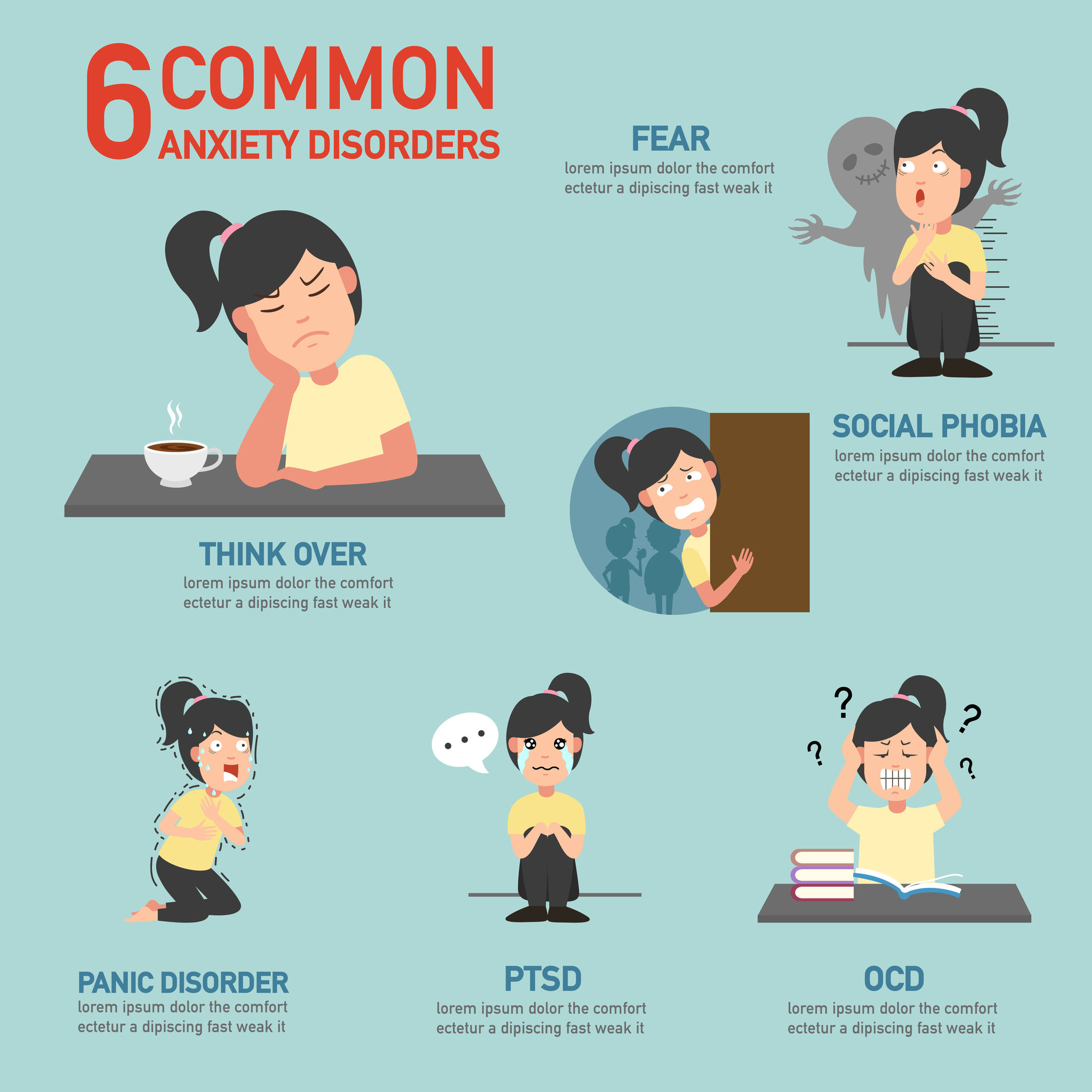Affordable and flexible counselling for anxiety options available
Affordable and flexible counselling for anxiety options available
Blog Article
Exploring Various Strategies in Counselling for Anxiety Condition for Lasting Change
When dealing with anxiousness problems, it's important to explore a range of therapy methods. Each approach provides special insights and devices to help you manage your signs efficiently. You may discover that integrating methods can yield the most effective results. However, understanding the subtleties of these approaches is crucial to fostering long lasting change. Suppose the right combination could launch a new degree of psychological wellness for you?
Comprehending Anxiety Problems: A Short Introduction
Stress and anxiety disorders, which influence numerous people worldwide, can significantly impact life. You could experience frustrating feelings of fear or fret that seem uncontrollable. These sensations can result in physical symptoms like an auto racing heart, sweating, and even wooziness. Typical kinds of stress and anxiety disorders consist of generalised anxiety problem, panic condition, and social anxiety condition. Each has unique indications, but they all share a tendency to interrupt your routine and relationships.Understanding the source of your anxiousness is important. It could come from genes, brain chemistry, or life experiences. Identifying your triggers can assist you handle your reactions much better. It is very important to bear in mind that you're not the only one in this battle. Many individuals encounter similar difficulties, and looking for help is a solid step towards sensation much better. By learning more about anxiousness problems, you're already on the path to understanding and handling your condition better.
Cognitive-Behavioral Therapy: Testing Adverse Thought Patterns
In Cognitive-Behavioral Therapy, you'll start by determining the adverse thought sets off that add to your anxiousness. Once you recognize these thoughts, you'll work with changing them with even more favorable alternatives. With each other, you'll build efficient coping approaches to aid manage your anxiety in daily circumstances.
Recognizing Adverse Thought Triggers

When you experience minutes of distress, recognizing the specific triggers behind your unfavorable ideas can be crucial in taking care of anxiety. Beginning by taking note of circumstances that provoke feelings of concern or concern. Is it a jampacked area, a forthcoming target date, or a discussion with specific people? Write down these circumstances in a journal. This will certainly assist you identify patterns in your reasoning. Notice physical sensations that accompany your adverse ideas, like a racing heart or rigidity in your upper body. By determining these triggers, you get insight right into what's fueling your anxiety. Recognizing these connections is the primary step in challenging those thoughts and eventually restoring control over your psychological actions.
Changing Thoughts With Positives
Testing adverse thought patterns is a crucial action in changing your frame of mind and lowering anxiety. You may usually find yourself caught in cycles of insecurity or tragic reasoning. Rather than allowing these ideas determine your sensations, practice replacing them with favorable affirmations or practical alternatives. When you assume, "I can not manage this," shift it to, "I can manage difficulties one step at a time." This basic adjustment can greatly impact your mood. Regularly identifying and countering these negative thoughts helps create a healthier internal dialogue. Remember, it takes time and effort, but regularly practicing this method can result in long lasting change, equipping you to deal with anxiety with renewed confidence and strength.
Structure Coping Methods Together
Replacing negative ideas is just the start of handling stress and anxiety efficiently. To produce lasting change, you require to develop coping techniques that empower you. Cognitive-Behavioral Therapy (CBT) aids you determine and test those purposeless idea patterns. Together, you and your therapist can check out exactly how these thoughts influence your feelings and behaviors.Start by developing sensible strategies, like journaling or mindfulness exercises, that allow you to challenge stress and anxiety head-on. When you face your concerns slowly, you'll learn to react in different ways.

Mindfulness and Acceptance-Based Approaches: Cultivating Present-Moment Recognition
As you navigate the intricacies of anxiety, integrating mindfulness and acceptance-based approaches can significantly improve your ability to cultivate present-moment awareness. By concentrating on the below and now, you'll discover that you can observe your ideas and sensations without judgment (Counseling services for anxiety). This practice assists you recognize your anxiety without feeling overwhelmed by it.Engaging in mindfulness workouts, such as deep breathing, body scans, or led meditations, allows you to ground yourself in your existing experience. Acceptance-based strategies encourage you to accept your feelings instead of deal with against them. When you accept your feelings, they lose their power over you.Incorporating these techniques right into your daily routine can transform exactly how you reply to anxiety. You'll create resilience and learn to navigate difficult circumstances with better convenience. Ultimately, cultivating present-moment understanding lays the foundation for enduring modification, equipping you to lead a much more satisfying life
Direct Exposure Treatment: Confronting Anxieties Progressively
Exposure therapy helps you confront your worries in a gradual way, making it less overwhelming. You'll learn strategies to encounter anxiety-provoking scenarios detailed, while likewise developing coping methods to manage your reactions. This approach encourages you to take control and lower anxiousness gradually.
Progressive Exposure Strategies

When dealing with anxiety, slowly facing your worries can be a powerful way to gain back control. This method, recognized as progressive direct exposure, involves gradually exposing on your own to the situations or items that trigger your stress and anxiety. Start with less daunting situations and progressively work your method up to more difficult ones. As an example, if you're scared of public talking, you might begin by talking in front of a mirror, after that proceed to sharing thoughts with a buddy, and at some point address a little team. Each action assists desensitize you to find out the concern, building your confidence with time. Remember, it's important to speed on your own and celebrate little triumphes as you move via this process, reinforcing your capability to take care of anxiousness effectively.
Building Coping Approaches
Structure effective coping techniques is necessary for taking care of anxiety, especially as you confront your worries slowly - Counseling services for anxiety. One effective approach is exposure treatment, where you begin by encountering your fears in a regulated manner. Begin with less daunting circumstances and gradually function your means as much as more challenging circumstances. This steady direct exposure assists desensitize you to anxiety causes, making them much less overwhelming.Incorporate leisure strategies, such as deep breathing or mindfulness, to soothe your mind during exposure. Track your progression, commemorating little success along the method to increase your confidence. Bear in mind, it's all right to take your time; the objective isn't perfection but stable enhancement. By building these methods, you'll encourage yourself to navigate stress and anxiety and embrace life a lot more totally
Psychodynamic Therapy: Uncovering Source of Stress And Anxiety
Psychodynamic treatment explores the unconscious mind, exposing the look at this site origin of your anxiousness. By analyzing your ideas, sensations, and past experiences, this approach aids you uncover underlying disputes and unsolved concerns that might contribute to your current stress and anxiety. You'll deal with a therapist to examine childhood years experiences, connections, and emotional patterns that form your responses today.As you obtain insight right into these deeper layers of your subconscious, you'll start to acknowledge how previous occasions influence your existing behavior. This understanding can cause catharsis, allowing you to process feelings you might have suppressed.Through the healing connection, you can additionally recognize defense reaction that might have established over time, providing a more clear path to alter. Eventually, psychodynamic treatment furnishes you with the devices to resolve your anxiousness at its core, advertising enduring transformation in your psychological wellness.
Holistic and integrative Methods: Incorporating Methods for Greater Effectiveness
Incorporating different healing techniques can enhance your trip towards taking care of anxiety much more effectively. By combining components from cognitive-behavioral therapy, mindfulness practices, and alternative approaches, you can create an individualized technique that addresses your unique needs. You could make use of cognitive-behavioral techniques to challenge unfavorable idea patterns while including mindfulness workouts to ground yourself in the existing moment.Additionally, exploring holistic methods such as yoga exercise or meditation can advertise relaxation and minimize stress and anxiety signs. This mix allows you to create higher self-awareness and resilience.Experimenting with these diverse techniques can assist you find what reverberates most with you. Keep in mind, it's regarding discovering a synergy that works, instead than staying with a solitary method. This integrative strategy not only uses instant relief but also fosters long-term skills for taking care of anxiousness, encouraging you to recover control over your life.
The Function of Support Solutions: Structure Resilience Through Connection
While it could appear that taking care of stress and anxiety is a singular journey, having a strong support group can play a necessary duty in your resilience. Bordering on your own with empathetic friends, household, or support teams creates a safe area where you can freely share your experiences and feelings. When you get in touch with others, you remind on your own that you're not the only one in this struggle.These relationships offer inspiration and can provide practical coping strategies that have actually benefited others. It's also a chance to get perspective; good friends can help you see situations differently, decreasing feelings of isolation.Moreover, emotional support cultivates a sense of belonging, which can substantially reduce stress and anxiety symptoms. By leaning on your support system, you can develop durability and take on challenges better. Bear in mind, reaching out for aid is an indicator of strength, and it can make all the distinction in your journey towards taking care of anxiety.
Regularly Asked Concerns
What Are the Typical Signs of Anxiousness Problems?
You could experience restlessness, exhaustion, difficulty focusing, impatience, muscle mass tension, and rest disruptions. Physical signs and symptoms can consist of quick heart beat, sweating, and shivering. Acknowledging these signs early can assist you seek proper assistance and treatment.
The Length Of Time Does Treatment Typically Last for Stress And Anxiety Problems?
Therapy for anxiousness disorders normally lasts anywhere from a couple of weeks to several months. It actually depends upon your private needs, progress, and the strategies your therapist makes use of to assist you manage your stress and anxiety effectively.
Can Drug Be Made Use Of Alongside Therapy for Stress and anxiety?
Yes, medication can certainly be made use of alongside therapy for stress and anxiety. Incorporating both techniques typically enhances treatment efficiency, assisting you handle signs and symptoms while discovering underlying concerns with therapy (Counseling services for anxiety). Constantly consult your healthcare company for personalized guidance
Are There Self-Help Approaches for Taking Care Of Stress And Anxiety?
Yes, there are a number of self-help strategies for taking care of anxiety. You can practice mindfulness, take part in normal exercise, keep a balanced diet regimen, establish a routine, and make use of deep breathing strategies to help in reducing stress and anxiety symptoms efficiently.
Exactly how Do I Know if I Required Expert Aid for Anxiousness?

Report this page